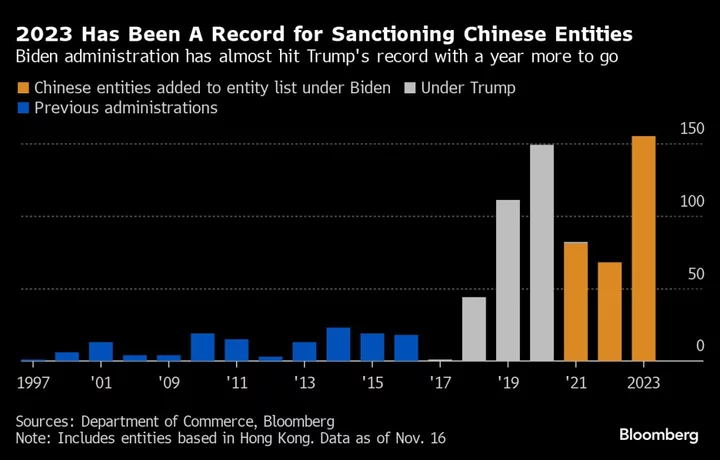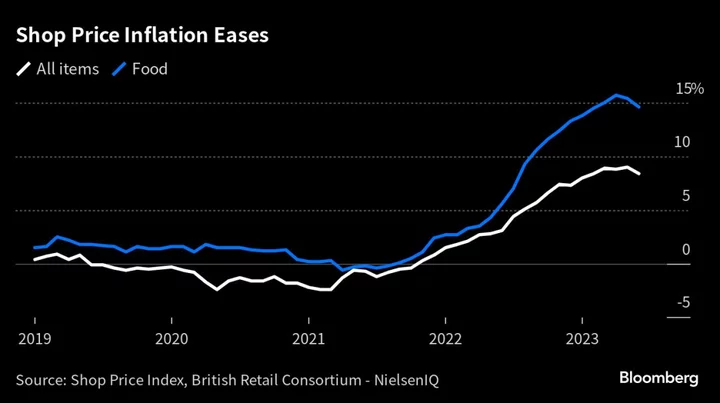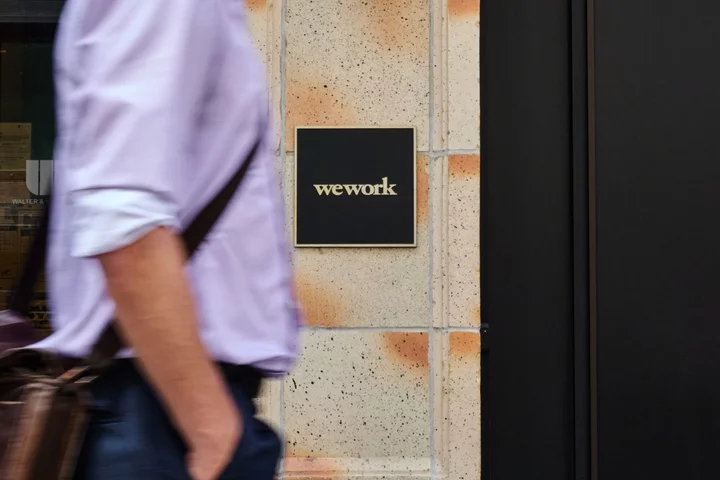The Biden administration’s decision to remove a Chinese organization from a sanctions list as part of a deal to combat the fentanyl crisis marks an unusual concession to Beijing’s complaints over US trade restrictions.
Taking the Institute of Forensic Science off the Commerce Department’s entity list was the only way for the US to make progress with China on the fentanyl issue, a Biden administration official said on condition of anonymity to discuss the agreement.
The Chinese police laboratory was added back in 2020, when the department accused it of being “complicit in human rights violations and abuses” in China’s Xinjiang region.
The list has been used for years as one of Washington’s tools for sanctioning and punishing people, companies or other organizations in China and elsewhere for actions which the US claims may compromise its national security. Beijing has said the entity list policy and other sanctions are an attempt to stop its development and hurt its firms.
US President Joe Biden has stepped up use of Commerce’s entity list to punish Chinese companies in the years since he took office. As of mid-November, 304 Chinese entities had been added to the roll during Biden’s presidency, according to Bloomberg calculations based on the department’s data. That’s just shy of the 306 entities that were listed by Commerce in former President Donald Trump’s entire four year tenure, and well above any administration before then.
“The Biden Administration has put a greater emphasis on sanctions, while the Trump Administration was more focused on tariffs,” according to Bloomberg Economics analyst Gerard DiPippo, who worked in the US government until 2021.
Removing any entity from the list is rare. Since 2008, only about seven have been taken off each year, according to a recent report from the Center for Strategic and International Studies. One prominent example happened in 2017, when ZTE Corp. was removed after it pleaded guilty to violating sanctions on trade with Iran.
Read More:Xi’s Big Week Ends With Rare Wins on US Ties, Taiwan, Economy
The company was later banned from buying American products for seven years for violating the terms of the deal — although Trump quickly reversed that.
“It’s all a giant cat-and-mouse game anyway,” according to Bill Reinsch of CSIS, who worked at the Commerce Department during the Clinton administration when the entity list was first created. “You put an entity on the list, the entity reincorporates with a different name and it will take us anywhere between a month to three years to figure that out.”
This isn’t the first case where US sanctions policy has become a barrier to dealing with China on a specific issue. Earlier this year, China turned down a request from the US for Secretary of Defense Lloyd Austin to meet then-Chinese Defense Minister Li Shangfu. Beijing demanded that the US first lift sanctions imposed on Li for his role in arms purchases from Russia.
Separately, the Commerce Department has removed a number of Chinese firms from a separate “unverified” list after they completed end-user checks, including 27 companies earlier this year and 26 companies late last year.
--With assistance from Mackenzie Hawkins.









